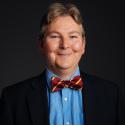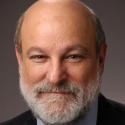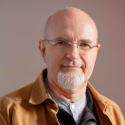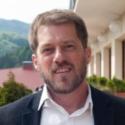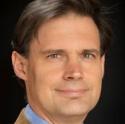2024 Theologians Network
- Image

Many evangelical theologians teach in universities, seminaries, and colleges with little opportunity for dialogue, fellowship, and encouragement from their evangelical brothers and sisters. The Theologians Network has been designed to provide this context and to make available an opportunity to interact with some of the world's leading evangelical scholars.
What Network Participants Are Saying
- "Being part of the Theologians Network, I have access to outstanding Evangelical theologians, valuable talks, promising contacts, and experienced Christian leaders. ELF is an important place for me to learn how I can combine active service in my local church with a theological academic career in a healthy and God-loving way. This year’s participation in ELF was especially beneficial for me, as we are now doing something incredibly difficult in our church. I drew strength at ELF to meet those challenges through the uplifting power of the Spirit and with the support of my brothers and sisters."
- Konrad Buzala, Vicar, Poland - "Participating in the ELF has been an invaluable experience for me on multiple levels. First and foremost, it has provided me with great opportunities for getting networked, being equipped, and receiving valuable resources for mission and evangelism. The diverse range of speakers and workshops at ELF enabled me to gain new insights, broaden my perspectives, and deepen my understanding of leadership and discipleship principles. Moreover, the Forum has served as a catalyst for spiritual growth and renewal in my life. The worship sessions, prayer times, and fellowship with fellow Christian leaders rejuvenated my spirit and reaffirmed my calling."
- Paul Hyung-Keun, General Secretary of Korea Lausanne Committee, South Korea
Applicants should be involved in full-time theological education (such as teachers, professors, and theology students).
Network Leadership
Network Speakers
Darrell L. Bock is Senior Research Professor of New Testament Studies at Dallas Theological Seminary in Dallas, Texas, as well as Executive Director of Cultural Engagement for the Hendricks Center for Christian Leadership there. An author or editor of about fifty books, his special fields of… Read more
Leonardo De Chirico is the pastor of Breccia di Roma, a church that he helped plant in Rome in 2009, and Chair of the Theological Commission of the Italian Evangelical Alliance. Previously, Leonardo planted and pastored an evangelical church in Ferrara, Italy from 1997 to 2009. He earned degrees… Read more
John Dickson’s story is eclectic. Starting out as a professional singer-songwriter, he now works as an author, speaker, historian, and media presenter. He was the Founding Director of the Centre for Public Christianity (2007-17). He has published over 20 books, two of which became television… Read more
Steffen G. Jenkins is half German, half Welsh, was born in Spain but again in England. He serves as Senior Lecturer in Greek and Biblical Studies at Union School of Theology in the United Kingdom. He has served at various seminaries in Cuba, as tutor in Biblical Languages at Tyndale House (… Read more
Dirk Jongkind is the Academic Vice Principal of Tyndale House, Cambridge, and an Affiliated Lecturer at Cambridge University. His main scholarly interest is the text and language of the Greek New Testament. He is also the editor of the Tyndale House Greek New Testament… Read more
Ádám Szabados is a Hungarian theologian and the leader of the Hungarian Evangelical Forum. Until 2017 he had been a pastor for 20 years. He is married to Dóra and has two adult sons. He studied English literature and linguistics at the University of Veszprém (MA equivalent, with honours), and… Read more
Roland Werner is a professor of theology, Bible translator, author, and church-planter in Marburg, a quaint medieval university town in the middle of Germany. He holds a Ph.D.in African and Semitic linguistics and a Ph.D. in theology. With his wife Elke he has served in many countries, including… Read more
Peter J. Williams is the Principal and CEO of Tyndale House, Cambridge. He was educated at the University of Cambridge, where he received his MA, MPhil, and PhD in the study of ancient languages related to the Bible. After his PhD, he was on staff in the Faculty of Divinity at the University of… Read more
Network Programme
Sunday, 26 May
It becomes increasingly problematic in Western society to simply open up the Bible and teach the Gospel from its pages. The attitude towards Scripture, and even towards any authoritative text, is changing for a variety of reasons. In this session, we will begin to analyse what is happening in society and the church and also explore the Bible to learn which of its qualities need to be taught in the contemporary church in order to help people appreciate Scripture as the permanent and authoritative Word of God.
How did the early church retain its gospel content? What were their methods? How rigorous was their approach? This talk examines vital evidence for the way Christians learned and passed on their message, and it offers lessons for today.
Monday, 27 May
In building an evangelical doctrine of Scripture, Christ’s attitude to the Old Testament is foundational. Evangelical doctrines of Scripture are therefore particularly challenged when people claim that the Old Testament text was not established or pluriform at the time of Christ and/or the apostles. We will look at some of the technicalities involved in the transmission of Hebrew, including vowel points and the forms of Old Testament quotations in the Greek New Testament and conclude that an evangelical doctrine of Scripture is still meaningful, and also generates questions for research.
In the face of current debates within the church, it can be immensely helpful to listen to the voice of the Early Church. The next couple of generations after the apostolic age were still very close to the source. How did the so-called "Apostolic fathers" - church leaders of the early 2nd century AD and subsequently, the "Apologists", formulate and also "contend for the faith that was once for all delivered to the saints“ (Jude 3)? In this workshop, we will look at some of their main themes and lines of argumentation, and how their life of discipleship was an integral part of their witness.
Tuesday, 28 May
Many of us, evangelicals, received help from Lesslie Newbigin in our wrestling with the epistemological challenges of postmodernism. But his views tend to remain unchallenged when they unhelpfully deviate from some evangelical convictions on the authority of the Scriptures. In this talk we will evaluate and critique Newbigin's mixed contribution to Christian theology.
As has been known for at least 1900 years, the Psalms have been carefully arranged to bless God’s people with news about his coming Son. We will focus on how King David introduces himself through the careful placement of some psalms that connect him, his kingly office and his life with our lives as readers and with the expectation of the ultimate King and Son of God.
Wednesday, 29 May
With so many important issues within evangelical circles, it is far too easy to ignore concerns in the culture at large. How can we engage well in a world that is often hostile to Christianity? In this session, we will consider how the American evangelical theological movement provides both encouraging examples and pitfalls to avoid for theological engagement with an increasingly pluralistic and secular society.
Evangelicalism's strength (and weakness) is that it is entrepreneurial. Evangelical leaders can quickly respond to needs and create strategic organizations or creative intellectual projects. In short, Evangelicalism has been influenced by charismatic and creative leaders... and thinkers. Because evangelicalism isn't institutional but is shaped by these strong leaders it also is vulnerable to leaders who are not well-grounded evangelicals. We've seen this over the last few decades as academic theology has been profoundly shaped by fads like Liberation Theology, Process Theology, Openness Theology, Post-Modern [Emergent] Theology, Barthian Theology, and New Perspective Theology. Historical perspective and robust biblical theology allow us to understand and critique these movements. This session will evaluate how evangelical theologians can become wiser and better equipped to evaluate the next academic fad.


